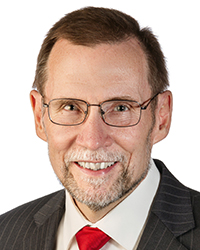

by Mark Mayberry
Synopsis: May we faithfully adhere to the pattern that Christ provided for the church, and not deviate from its divinely assigned mission.
Brothers Kyle Pope and Doug Burleson engaged in a public discussion at the Freed-Hardeman University Renaissance Center in Dickson, TN, on November 15, 2019. Hundreds of brethren attended this event, many traveling considerable distances. The event was also live-streamed by Freed-Hardeman University and also the CEI Bookstore/TruthBooks.com. A link to the audio soundtrack, along with a brief description of the points of discussion, can be found here: truthmagazine.com/summary-of-the-dickson-discussion. This face-to-face discussion followed a written exchange between these two men that was published in both Truth Magazine and the Gospel Advocate in October 2019.
Kyle Pope serves as the evangelist of the Olsen Park church of Christ in Amarillo, TX, and is a member of the Truth Publications Board of Directors. Doug Burleson labors with the Estes church of Christ in Henderson, TN. He serves as an Associate Professor in Bible at Freed-Hardeman University, where he also is the Assistant Dean of the College of Biblical Studies.
I am deeply grateful to brothers Greg Tidwell (editor of the Gospel Advocate), Randy and Jodie Duke (owners of the Gospel Advocate), David Shannon (president of Freed-Hardeman University), along with the two participants, Doug Burleson and Kyle Pope. Doug and Kyle dedicated considerable time and effort into their written exchange, and the subsequent verbal dialogue.
The spirit manifested by all who were involved in this discussion has been admirable. Indeed, I sincerely appreciate the genuine warmth and brotherly affection that has been evident, not only in preliminary discussions, planning, and preparation but also in the actual presentation.
An open and honest discussion of differences that exist among brethren is good. Even debates can serve a beneficial purpose—revealing differences, defining positions, helping participants and interested observers to clarify their thinking, and, hopefully, come to a common understanding of God's will.
Proverbs 27:17 says, "Iron sharpens iron, so one man sharpens another." Sparks can result in such circumstances, but that's not necessarily a bad thing. In our passionate commitment to truth, we must also speak the truth in love (Eph. 4:14-16). Such a spirit prevailed in these recent efforts, not only between Doug and Kyle but also those who worked behind the scenes to make these written and oral discussions happen. A heartfelt thanks to Doug and Kyle, Randy and Jodie, along with Greg and David. I count you all as brethren and friends.
I serve as the editor of Truth Magazine, which is a division of Truth Publications, Inc., a nonprofit organization that seeks to publish and provide Bible-based materials to help us all grow closer to God. I have asked Daniel King, David Dann, Ron Halbrook, and Steve Wolfgang to offer their reflections on the Dickson discussion that occurred between Doug Burleson and Kyle Pope. These men serve on the Truth Publications Board of Directors. They were present at the Dickson discussion that was held in Dickson, TN, on November 15th.
My observations found below, serve as a more general assessment of where we are as a brotherhood of believers. From a personal standpoint, my family ties with the restoration movement go back at least four generations, if not longer. My wife, Sherelyn, and I are so blessed: The maternal and paternal branches of our family trees have been rooted in churches of Christ for generations upon generations.
This means I have family on both sides of the institutional question. I have kinfolk who have worked and worshipped with Doug. Kyle and I have family connections. My brother-in-law, Tim Matheny, shares a life-long friendship with Greg Tidwell. My uncle, John Hutcheson, Jr., and my wife's uncle, Jim Jackson, both taught at David Lipscomb University. I have close family among non-institutional brethren and close family on the other side of the aisle.
As I reflect upon the recently completed Dickson discussion, along with the meetings that occurred earlier, my thoughts keep returning to the question, "What is our mission?" Specifically, what is the mission of the church that Christ promised to establish (Matt. 16:13-20), that Peter proclaimed on Pentecost (Acts 2), and that, according to Paul, reflects the manifold wisdom of God (Eph. 3:8-11)?
What do we mean by mission? In the context of describing the mission of the church, it signifies the duty, function, purpose, and work that God has assigned to Christians.
The Collins English Dictionary defines "mission" as "a specific task or duty assigned to a person or group of people." The American Heritage Dictionary says it refers to "a special assignment given to a person or group: an agent on a secret mission." Examples include "(1) a combat operation assigned to a person or military unit; (2) an aerospace operation intended to carry out specific program objectives: a mission to Mars" (AHD).
Many organizations recognize the value of having a clearly defined mission. The Peter F. Drucker Foundation for Nonprofit Management suggests that a great mission statement is short and sharply focused, clear and easily understood. It defines why we do what we do, and explains why the organization exists. It does not prescribe means, and is sufficiently broad, providing direction for doing the right things, addressing opportunities, corresponding to our competence, and inspiring our commitment. Ultimately, it enables us to say, "This is the work for which I wish to be remembered!"
The mission of the home is defined in Ephesians 5:22-6:4, Colossians 3:18-21, along with other related passages. The mission of civil government is defined in Romans 13:1-5, 1 Peter 2:13-17, along with other related passages.
The mission of the Lord's church is set forth in the Great Commission as well as other related passages (Matt. 28:18-20; Mark 16:15-16; Luke 24:44-49; John 20:21-23; Acts 1:6-8). Accordingly, it enjoins the threefold responsibility of evangelism, edification, and benevolence.
In the first century, the church effectively fulfilled its mission and mandate. Christ commanded the disciples, "Go and preach," and they promptly obeyed (Mark 16:15-16, 20).
In both an individual and collective sense, disciples of Christ must be evangelistic (Acts 8:4; 20:25-27; Eph. 4:11-13).
Paul is an example of evangelistic zeal (Acts 19:8-10), as are the saints at Philippi and Thessalonica (Phil. 4:15-16; 1 Thess. 1:8-10).
The English word "edification" is defined as "(1) improvement, instruction, or enlightenment, especially when morally or spiritually uplifting; (2) the act of edifying or state of being edified" (CED). The Greek word oikodomē, translated "edification," refers to "the process of building" or "the result of a construction process" (BDAG).
In both an individual and collective sense, Christians endeavor to build up the body of Christ (Matt. 28:18-20; Rom. 14:19; 15:2; 2 Cor. 13:10; Eph. 2:20-22).
Whenever the church fulfills its mandate, good is accomplished and growth occurs (Col. 1:3-6).
Benevolence is defined as "(1) an inclination to perform kind, charitable acts; (2) a kindly act, or a gift given out of generosity" (AHD). The Greek word charis, normally used of "grace" or "kindness," is used to describe the financial "gift" in for the needy saints in Jerusalem (1 Cor. 16:1-3, esp. v. 3). The Greek word eulogia, normally used of "praise" or "blessing," refers to this same "bountiful gift" (2 Cor. 9:1-5, esp. v. 5).
In both an individual and collective sense, disciples of Christ must be benevolent. As individuals, we must do good unto all men, but especially the household of faith, visiting the orphans and widows in their distress (Gal. 6:10; Jas. 1:27).
Collectively, the church helps with the physical needs of local saints (Acts 4:32-37), and in times of distress, comes to the aid of needy saints in other places (1 Cor. 16:1-4).
"Mission creep" describes "the tendency for a task, especially a military operation, to become unintentionally wider in scope than its initial objectives" (CED). It represents "a gradual shift in objectives during the course of a military campaign, often resulting in an unplanned long-term commitment" (Lexio). Merriam-Webster defines it as "the gradual broadening of the original objectives of a mission or organization."
While the problem of mission creep may not initially seem to reflect a radical departure from God's word, subtle shifts in our mission will have the gradual but cumulative effect of moving us far away from our real purpose.
Consider the example of King Saul's disobedience in 1 Samuel 15. God provided sufficient rationale (1 Sam. 15:2; cf. Exod. 17:8-16; Deut. 25:17-19). He provided a clear set of instructions (1 Sam. 15:3; cf. Num. 24:20). He provided sufficient resources to accomplish the divinely-ordained task (1 Sam. 15:4; cf. Prov. 21:31). Although Saul tried to justify his actions, he was rejected as king became of his disobedience. Today, we would say that King Saul and the people were guilty of mission creep. God says it affirms a spirit of disobedience, rebellion, and insubordination (1 Sam. 15:7-23).
Does the danger of mission creep have an application to the home? Recently, I observed the headline: "Vigilante couple 'lured thieves to steal bikes then battered them with baseball bats'" (Jimmy McCloskey). Acknowledgement of the castle doctrine is one thing; vigilante (in)justice is quite another. However, the greater danger is neglecting the primary mission of the home, and expecting the church or the government to take up the slack.
Does the danger of mission creep have an application to civil government? Of course. Witness the radical expansion of the civil government into every aspect of modern life. The concepts of "individual liberty" and "limited government" are wholly forgotten virtues among political progressives.
Does the danger of mission creep have an application to the church in the areas of evangelism, edification, and benevolence? Again, the answer is, "Yes."
Many have expanded the scope of church responsibility in the areas of evangelism, edification, and benevolence. Instead of proclaiming the saving gospel of Jesus Christ, modern pulpits often resound with messages conforming to the mores of contemporary culture, coupled with platitudes, psychobabble, and sentimentality (Col. 2:8).
Many have expanded the scope of the church in the areas of edification. Instead of focusing upon spiritual growth, many churches extended their mission to include responsibilities assigned to the home, namely, entertainment, recreation, and social activities (cf. 1 Cor. 11:22).
Many have expanded the scope of the church in the area of benevolence. Fellow-Christians are objects of benevolence from congregations, as is evident by Paul's collection for the poor among the saints in Jerusalem (Rom. 15:26, 31; 1 Cor. 16:1; 2 Cor. 8:4; 9:1, 12). Please note that, from the verses above, along with earlier apostolic examples (Acts 4:32-37; 6:1-6; 11:27-30), the consistent focus of church benevolence is "needy saints." Even 2 Corinthians 9:13, which refers to "the liberality of your contribution to them and to all," does not depart from this pattern. When the Greek word pas (meaning "all" or "every") is understood contextually, we see that Paul praises the Corinthian's willingness to assist needy saints in Jerusalem (them), along with destitute brethren in other places (all).
Let us acknowledge the authority of Jesus Christ, faithfully proclaiming His word and humbly submitting to His will (Col. 3:17; 1 Pet. 4:11). Respecting the roles that God/Christ has given to the home, civil government, and the church, may we be faithful to the mission and mandate of each, and not allow ourselves to become involved in "mission creep."
In closing, I reaffirm my appreciation to Doug and Kyle for their willingness to discuss issues that have divided brethren in the modern era. I value my friendship with both men. I am grateful to Greg and Randy for opening the pages of the Gospel Advocate to hear both sides of this discussion. This is a welcome and wholesome change from earlier days when "the yellow tag of quarantine" was assigned to all who could not accept or conform to the institutional mindset of the age. I am grateful for the spirit of brotherly love, and the desire for unity that was manifested in the Dickson discussion. My hope and prayer is that such open and honest dialogue will continue.
AHD = American Heritage Dictionary of the English Language, 5th ed. Houghton Mifflin Harcourt, 2016.
BDAG = Bauer, Walter, Frederick W. Danker, William Arndt and F. Wilbur Gingrich. A Greek-English Lexicon of the New Testament and Other Early Christian Literature. 3rd ed. Chicago: University of Chicago Press, 2000.
CED= Collins English Dictionary—Complete and Unabridged, 12th ed. HarperCollins Publishers, 2014.
McCloskey, Jimmy. "Vigilante Couple 'Lured Thieves to Steal Bikes Then Battered Them with Bats'." Metro. January 10, 2020. https://metro.co.uk/2020/01/10/vigilante-couple-lured-thieves-steal-bikes-battered-baseball-bats-12037361/.
"Mission Creep." Merriam-Webster. https://www.merriam-webster.com/dictionary/mission creep.
"Mission Creep: Meaning of Mission Creep by Lexico." Lexico Dictionaries. https://www.lexico.com/definition/mission_creep.
Author Bio: Mark and Sherelyn have labored with the Adoue Street church of Christ in Alvin, TX since 1998, where he serves as the evangelist and an elder. The church website is ascoc.org. His Bible study website is markmayberry.net. He can be reached at mark@truthpublications.com.

Participants in the Dickson discussion (from left to right): Mark Mayberry, Greg Tidwell, Kyle Pope, Doug Burleson, and David Shannon.
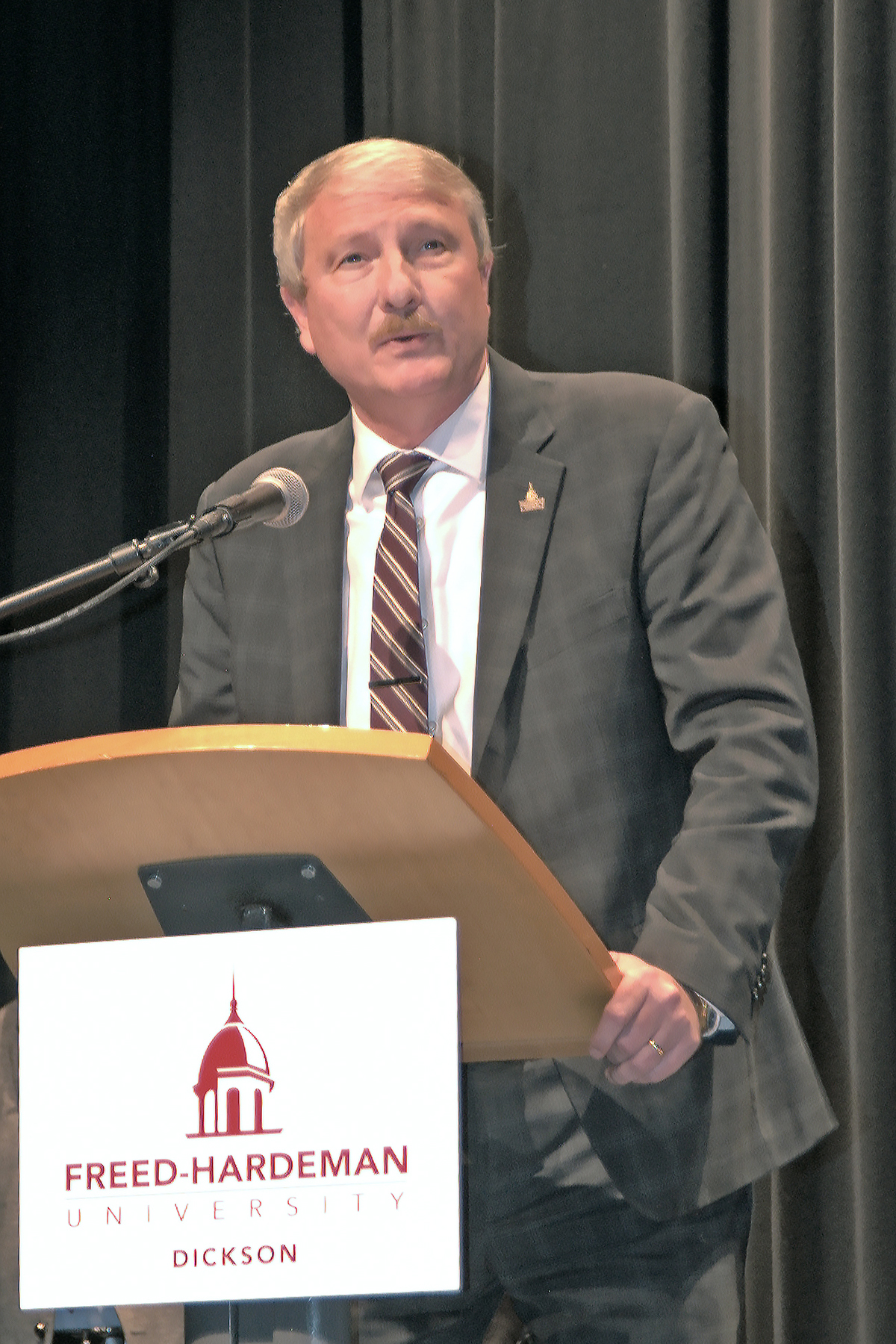
David Shannon, president of Freed-Hardeman University, welcomes the audience to the discussion.
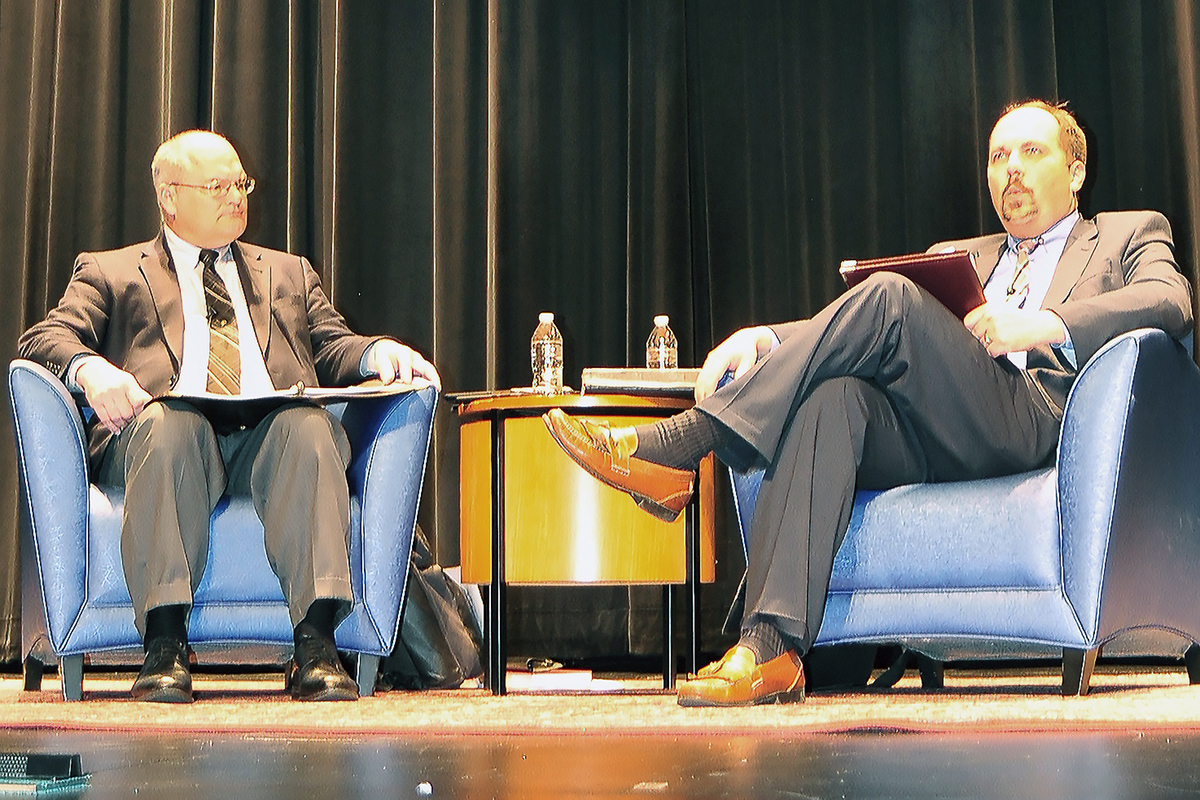
Kyle Pope and Doug Burleson during the discussion in Dickson.
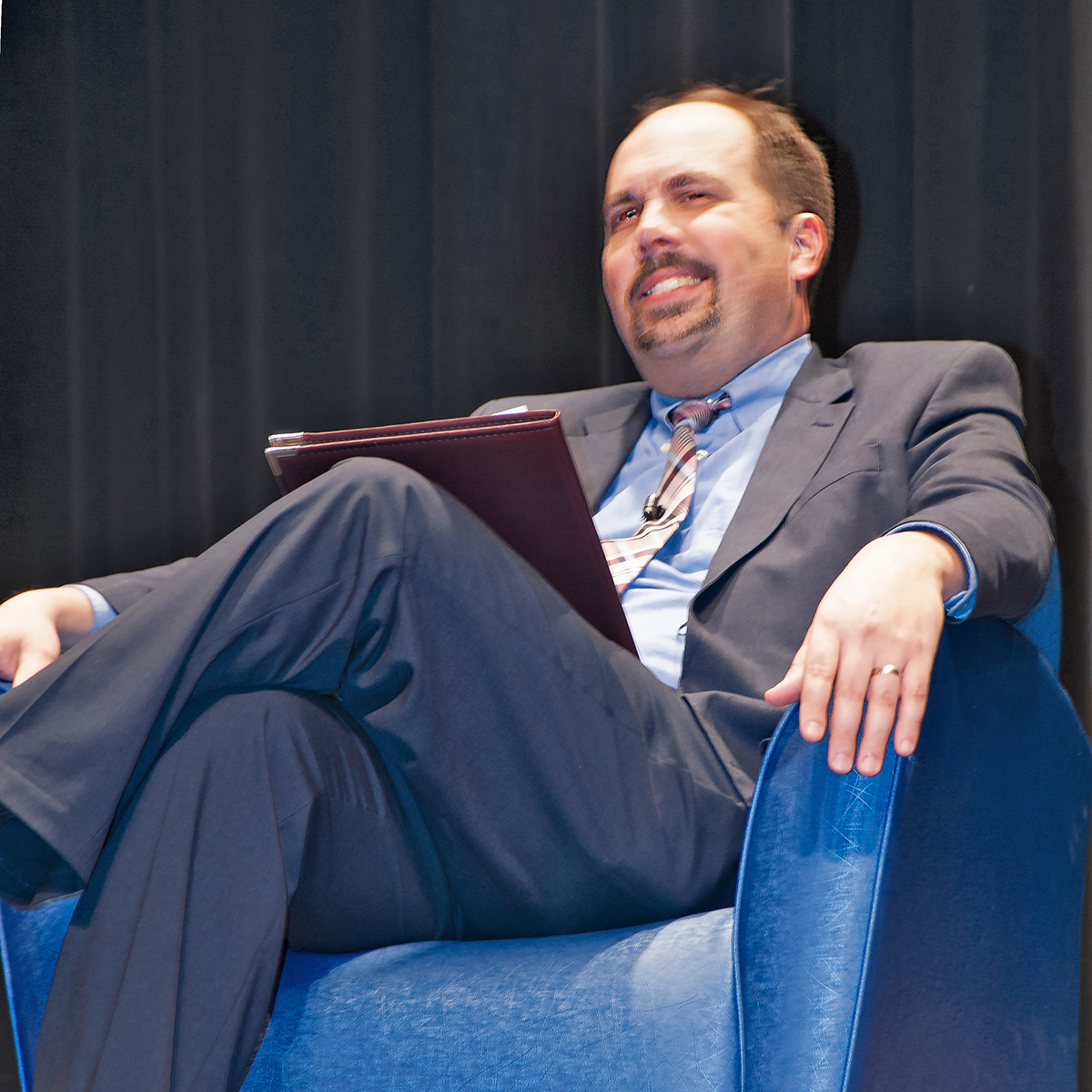
Doug Burleson ponders a point during the Dickson discussion.
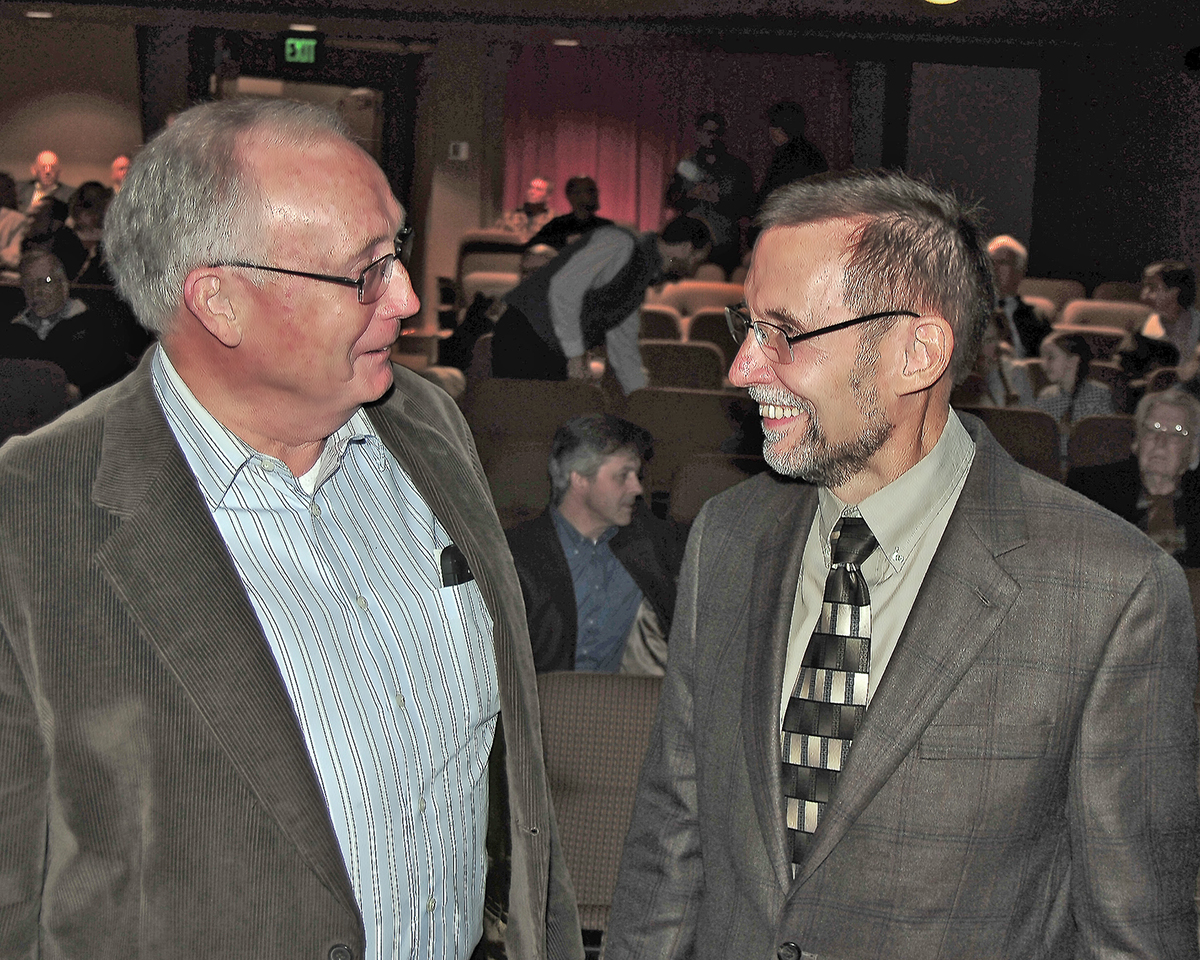
Mark Mayberry and bro. Don McCaslin visiting at the Dickson discussion.
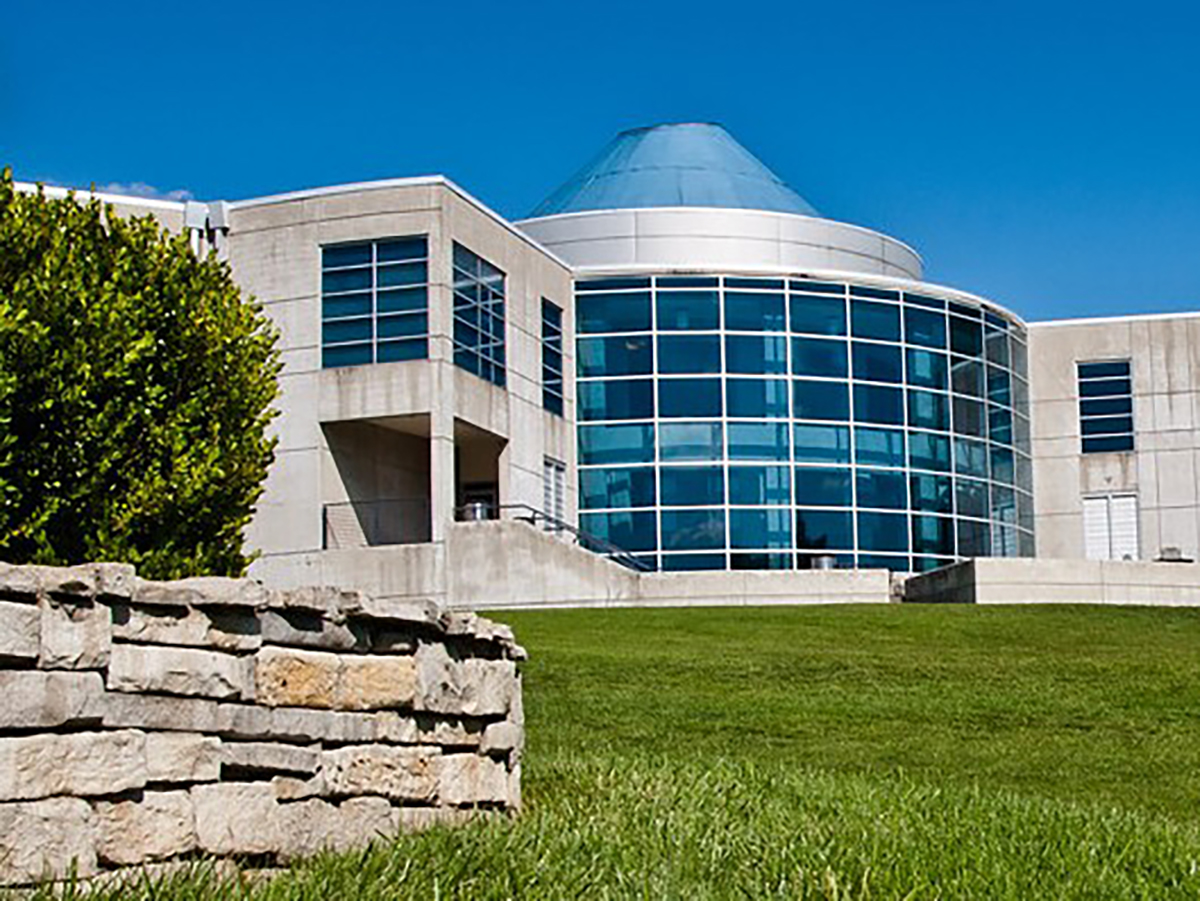
The Freed-Hardeman University Renaissance Center in Dickson, TN, site of the discussion.